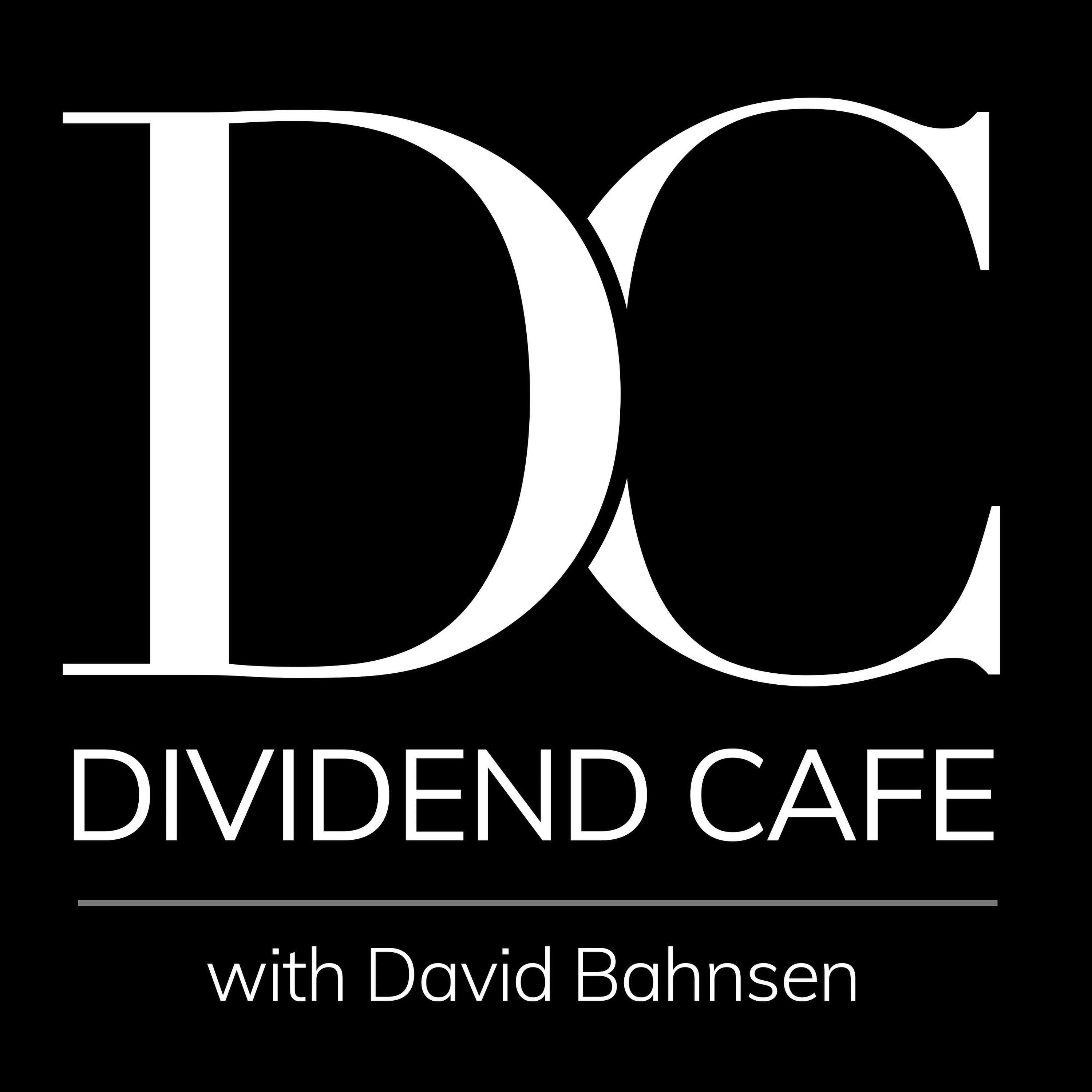Dear Valued Clients and Friends,
Markets appear to be up a tad on the week, with little volatility to show for it (as of press time, anyway). Earnings season is off to a really strong start, but I want to wait one more week to begin “report carding” earnings season (partially to not jinx it, and partially because it is a tad premature). I took advantage of this week’s slow news week (sorry, Mueller) to talk about the broad economy and my perspective on where we are in the macroeconomic cycle, and what it means for all of us at this stage in the game.
Jump on into the Dividend Cafe … You will find something you like, for sure!
Dividend Café Video
Dividend Café Podcast
The unforced error it will be difficult to wish away
It is becoming more clear that the business expansion underway before the trade war has taken on water that it may not be able to drain away even if there is a palatable conclusion to it all with China. Some impact to nominal growth has already surfaced, and is seen in manufacturing surveys pointing to a decline in new orders. The market has not yet cared because the comparative reference rate for how strong corporate profits are valued has declined, boosting valuations and sentiment.
I do not trust my own analysis on this to the degree I want to because (a) The data is still coming in, and (b) I certainly know how much I want to believe that the trade war did not disrupt the capex renaissance that our economy was beginning to enjoy. But all wishful thinking aside, the bad case is that the trade war suppressed enough confidence to stall and stunt the projects needed for further enhancement to productivity and growth (thereby accelerating the end of this economic expansion). The best case would be that the present slowing evidenced in the data is temporal and will not show “slip through” to the whole economy – giving things time for a trade resolution to take hold. Time will tell us more.
Cause and effect?
Note the peak in economic activity growth (manufacturing, construction, etc.) – February 2018 – the month the trade war began. Labor growth has stayed steady, but the manufacturing and construction side (while still growing) has seen its growth contract/slow significantly!

The worst argument for a recession ever
One commonly uttered piece of anti-intellectual nonsense is that “the longer the recovery has been, the more likely a recession is. “In the basic sense, that the “more days that have gone by, the less there are to go.” Sure, that’s really helpful information. But it says nothing whatsoever about the timing of a recovery ending or a recession starting. It merely tells you that “yesterday was one day ago.” While Captain Obvious is always fun at parties, it is hardly practical economic commentary.
Race to the bottom?
I am intrigued by the fact that the Euro sits around $1.12 to the U.S. Dollar even as so much presumed dovishness exists around the future of European monetary policy, and certainly no expectation of a reversal, with the announcement that Christine Lagarde will be the replacement to Mario Draghi at the European Central Bank (Lagarde is the former head of the IMF, and is perhaps the only candidate they could have found more dovish than Draghi proved to be). My view is that the Euro running in place is more about the dollar than the Euro. If the Fed was in a 2018 hawkish state of mind, I expect the uber-dovish Euro landscape would be pushing the Euro far lower. But with the Fed joining the party in trying to weaken their own currency, the market is stuck with two currencies (three if you want to count the Yen) trying to jockey for superiority in weakening their own currency.
How ’bout that dollar?
On a trade-weighted basis (blue line below), the dollar is currently as strong as it has been in nearly 20 years. Why does evaluating it this way matter? Because the standard dollar index (white line below), also showing strength, leaves out emerging markets countries, and it is fair to say our dollar’s comparison to countries like China and Mexico matters in evaluating our overall economic health. Our view, and this ties into our short term view on emerging markets pricing, is that if the dollar is over-valued (it is), it will need to demonstrate such against the emerging markets currency world, not merely against Europe and Japan.

* Bloomberg Finance, July 19, 2019
Something that has to change
The FDA has approved 14 new drugs this year. Fourteen. It was 59 all of last year (which was actually the most ever in a single year). Whether it is the result of human genome sequencing or improved R&D, there are significant opportunities slowed up in a bureaucratic pipeline. This does have profound implications for investors, but far more importantly, for the quality of human life.
Look at that bold call!
I read a report this week that said their prediction for stocks for the rest of the year is that they will be somewhere between down 5% from here to up 5% from here (so in the next five months), with volatility along the way. I found that prediction as useful as my weather report telling me here in NYC that it may be rainy or sunny tomorrow, with the possibility of both.
No one – NO ONE – should be able to predict the market, so I fault no one for not knowing. But I will say that forecasts which can be applied to any short term window, ever, are hardly useful.
Here is our bold call for you – we do not know what markets will do in the next six months. We are slowly and prudently harvesting some dry powder cash. Volatility has actually been very low, so naturally the smarter prediction is that (as a mean-reverting force) it will elevate. But our clients expect long-term success out of their goals, and short term errors undermine long term realities. We favor the avoidance of huge draw-downs via the use of lower beta stocks and high-quality alternatives. And we think short term market calls are for carnival barkers.
David L. Bahnsen on Fox’s Varney & Co. – Markets and Mueller Hearing, Big Tech Antitrust Rumors, AT&T vs. Verizon
My word for the week …
For all of you who worry immensely about the state of the national debt, as I do, reflect on this:
The size of the deficit is less worrisome than the amount of government spending. Put differently, a small deficit in an economy where government spending is a small percentage of GDP is more benign economically than almost no deficit where government spending is a huge percentage of GDP. Why? Because of Economic 101. The government can only spend where they have extracted money from the private sector. A large percentage of government spending (with little or no deficits) means a very high tax state, which means a meager growth environment, limiting economic and investment opportunity. The “crowding out” effect is real – as high government spending mutes demand in the private sector over time. The United States faces existential economic issues to answer (when the environment is more conducive to resolution) around spending, debt, and annual deficits.
Unfortunately, we are highly unlikely to answer those questions before the next recession. And if you think deficits are high now, wait until we enter a recession.
My stat(s) of the week
Thirty years ago the national debt was $2.8 trillion (49% of GDP).
The 10-year bond yield was 9.1%.
Today, the national debt is $22 trillion (106% of GDP).
The 10-year bond yield is 2.1%.
Are we clear on what this means?
Politics & Money: Beltway Bulls and Bears
- The House/Senate/White House appears to have reached a deal to pass a budget ($320 billion of new spending), and an agreement to move the debt ceiling for a couple of years.
- The next batch of Democratic Party primary debates will take place next week over two nights (Wednesday and Thursday). At their conclusion, I do plan to do a special Dividend Cafe podcast recapping the investor implications of the major economic platforms and policy positions coming out of the debate and race.
- I do think that the announcement this week of a pending DOJ antitrust investigation into a cabal of leading “big tech” companies is a bigger story than people believe, not to mention a bigger story than the $5 billion settlement with Federal Trade Commission this week on other violations. A re-shaping of the relationship between Silicon Valley and Washington D.C. has been a significant theme of ours for two years now, and it is playing out in significant ways right before our eyes. I talked about it a little on Stuart Varney’s Fox Business show this week. The major takeaway is not that big tech is in trouble or not in trouble, as much as that very successful and growing companies who have bipartisan opposition against them and a shift in public sentiment against them are highly likely to see some angst visible in their market multiple over time (i.e. the valuation investors are willing to give).
Chart of the Week
I believe a recession will enter our economic reality at some point, for the simple reason that no one has convinced me yet that they have successfully repealed the laws of business cycles. I do not know when the recession will come, and I do not know what the magnitude will be when it hits. I do know that I am not particularly impressed with event-driven arguments contributing to the onset of a recession. “It will be Iran that does it.” “It will be the election.” “If big tech cools off then the market will collapse.” Whatever. I believe a time is coming where a misallocation of capital will hit its excess point, and the Fed will have to go the other way (too late, of course), and contractionary conditions will take over. I wrote about the beginning of this commentary what my current concerns are (still unresolved) around a potential catalyst. But it is important that we not lose historical context of how many “events” could have (but didn’t) serve as a recession catalyst for the last decade. And frankly, many of them “made more sense” than some of what is on our radar now. Conclusion: Be humble, be prudent, and be diligent – in both directions.

* Strategas Research, Charts of the Week, July 20, 2019
Quote of the Week
“The first lesson of economics is scarcity: There is never enough of anything to fully satisfy all those who want it. The first lesson of politics is to disregard the first lesson of economics.”
~ Thomas Sowell
* * *
More on earnings season next week, and soon a special podcast coming on the Democratic primary and economic platform. I hope this week’s dabblings into macroeconomic reflections around spending, debt, and recession watch were not too granular or boring. At The Bahnsen Group, it is macro and micro, always and forever. But in a week where the Dividend Cafe is hijacked by discussions of currency, debt, and economic growth, do not lose sight of what drives an investor outcome: Operating companies delivering results, creating value, serving their customers, the profit motive that comes therewith, and the future cash flows of these companies and process being discounted into the present. If there were no businesses to create profits and share them with you, the macro picture would be irrelevant for investors. The environment in which businesses operate matters a lot. But it is earnings that are the sine qua non of this whole thing. And for us, it is the dividends we get from those earnings. To that end, we work.
With regards,

David L. Bahnsen
Chief Investment Officer, Managing Partner
The Bahnsen Group
www.thebahnsengroup.com
This week’s Dividend Café features research from S&P, Baird, Barclays, Goldman Sachs, and the IRN research platform of FactSet
The Bahnsen Group is a team of investment professionals registered with HighTower Securities, LLC, member FINRA, SIPC & HighTower Advisors, LLC a registered investment advisor with the SEC. All securities are offered through HighTower Securities, LLC and advisory services are offered through HighTower Advisors, LLC.
This is not an offer to buy or sell securities. No investment process is free of risk and there is no guarantee that the investment process described herein will be profitable. Investors may lose all of their investments. Past performance is not indicative of current or future performance and is not a guarantee.
This document was created for informational purposes only; the opinions expressed are solely those of the author, and do not represent those of HighTower Advisors, LLC or any of its affiliates.












